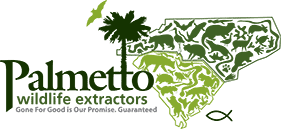So you’ve left out some special treats for your bird friends. They seemed to be pretty happy at first, chirping about as they nibble on feed. However, you’ve noticed they’ve stopped coming around. You ask yourself, “Do they not like the food I’ve left them?” or “Have the neighbors taken them away?”or “Do they not… Read More…
The Secret Behind the Skunk’s Stink
Normally, body odor would be something to be ashamed about, but not for the skunk. Not many animals are popular, or should we say, notorious, for their pungent smell like the skunk. While other citizens of the animal kingdom make loud noises, use camouflage techniques, or even use sharp tails and quills to ward off… Read More…
Things You Ought to Know About Bears
There are eight species of bear around the world including the brown bear, the North American black bear, the Asiatic black bear, the giant panda, the sun bear, the polar bear, the sloth bear and the spectacled bear. From polar bears, which are considered the largest land predators on earth, to the sloth bears, known… Read More…
Hunting and Eco-tourism Can Help Wildlife
Following the death of Cecil the lion, advocates concluded that responsible hunting can help preserve wildlife and wilderness. Critics also noted that eco-tourism can do the just the same only with fewer casualties. While irresponsible tourism may pose subtler threats, it can generally save wildlife without sacrificing any lives in the process. Research also suggests… Read More…
Is a Permit Necessary to Control Wildlife on the Farm?
Wildlife has indeed its own aesthetic and recreational value, however, they have the potential to cause damage to agricultural producers. Producers who may encounter damage to their crops can conduct lethal control but only after they have obtained the required permits. Using lethal control without proper permits is illegal and can be subject to state… Read More…
Parks Seek Help to Control Wildlife
Some people think that park wildlife takes care of itself, but the truth is without management the habitat gets eaten and water gets contaminated. Parks actually rely on legal hunting as the primary tool to prevent wildlife from destroying habitats. In order to help ensure effective wildlife management, eight-five percent of park acreage is now… Read More…
Interesting Facts About Beavers
Known to be the largest living rodents in the world, beavers are well-adapted to semi-aquatic life. They have thick fur, webbed feet and flattened, scale-covered tails as well as powerful jaws and strong teeth for building homes and dams. Below are some fascinating facts about these hardworking animals. There are only two species of beaver… Read More…
How to Tell if an Animal is Orphaned or Injured
During spring season, it is very common to see baby wild animals just about everywhere. These animals might seem like they need help, but unless they are truly orphaned or injured, there is absolutely no need for a rescue mission. Listed below are some tips on how to decide whether or not these animals need… Read More…
Proposed Geese Removal Solutions in Tennessee
During the city council’s finance and management meeting at City Hall, Mary Lu Swift and some of her Luther Lake neighbors presented a petition calling for action to address the amount of geese and stormwater runoff at the lake in Tennessee. Blaine Hyle, USDA district supervisor for the Middle Tennessee/Nashville region, also present during the… Read More…
Myths and Facts About Bats
While they normally strike you as creepy creatures, bats do play an important role in our ecosystem. For one, bats matter a lot to areas like Michigan because they eat insects that feed on the crops. A recent study has shown that bats save around $1 billion globally by controlling pests that attack corn crops…. Read More…





